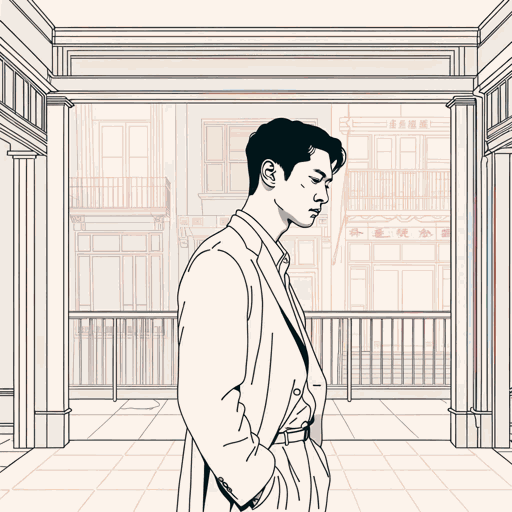74 pages • 2 hours read
Charles YuInterior Chinatown
Fiction | Novel | Adult | Published in 2020A modern alternative to SparkNotes and CliffsNotes, SuperSummary offers high-quality Study Guides with detailed chapter summaries and analysis of major themes, characters, and more. For select classroom titles, we also provide Teaching Guides with discussion and quiz questions to prompt student engagement.
Summary and Study Guide
Overview
Charles Yu’s novel Interior Chinatown (published in 2020) was a New York Times bestseller and won a National Book Award. The novel is categorized as Historical Chinese Fiction and Asian American Literature, but it has a fair amount of humor too.
Yu’s work as an author includes several earlier books—Third Class Superhero (2006), How to Live Safely in a Science Fictional Universe (2010), and Sorry Please Thank You: Stories (2012)—as well as articles and essays in national magazines, such as The Atlantic and The New Yorker. In addition, he’s worked as a scriptwriter for numerous television shows, most notably Westworld on HBO.
Plot Summary
Interior Chinatown is set in the Chinatown district of present-day Los Angeles. The protagonist, twenty-something Asian American actor Willis Wu, narrates the story. It covers about five years of his life, while extensive flashbacks to prior periods in the main characters’ lives add context.
The book uses a screenplay structure to tell Willis’s story, and a physical location identifies each scene. For example, a location tag like “Interior Chinatown” refers to a scene set inside a building in Chinatown. Similar tags in the dialog identify the speaker’s name or role in a scene. Although the story is from Willis’s point of view, he refers to himself using a second-person voice in keeping with the script format.
Willis’s narration slides between describing scripted scenes that he’s filming for a TV show and his inner musings about what it means to be an Asian person in the US. It’s often difficult to tell how much of a scene is part of the show and how much is Willis’s perception. This confusing narrative style is a deliberate device that the author uses to show Willis’s inner confusion about what role he should be playing in life.
The plot follows Willis’s life and career as he’s cast in one stereotypical Chinese role after another. Since his boyhood, he’s aspired to play Kung Fu Guy, the penultimate role for an Asian actor in Hollywood. Willis and his family live and work in Chinatown, which has shaped their limiting beliefs about what is possible for Asian people in America. As Willis struggles to free himself from the roles that Hollywood, American culture, and his family have set for him, he examines the themes of elusive national identity, living a typecast life, and the need for self-definition.
As the story opens, Willis is working on a cop show called Black and White that shoots most of its scenes on location in Chinatown. Willis has become proficient at numerous minor roles that fit the Western stereotype of what Asian people should look and sound like. He envies the show’s stars, who are Caucasian and Black, concluding that this racial polarity is easier for mainstream culture to accept than the ambiguous foreignness of Asian people.
Willis’s greatest ambition is to play the show’s role of the kung fu master. In earlier decades, his own father achieved this role, but he now can find only bit parts playing a generic Old Asian Man. Even as Willis rails against a system that won’t allow him to become the star, he continues to pursue his Kung Fu Guy dream.
During this time, Willis meets an actress, falls in love, gets married, and fathers a daughter. His life reaches a crisis point when his wife receives an offer for a show of her own with a part for him. Willis refuses to move out of Chinatown because he won’t give up on his dream role. His wife divorces him and takes their daughter to the suburbs.
Five years later, Willis succeeds in landing the role he wants. Only at this point does he realize that the values and customs of his family and his culture still trap him. Only after he breaks out of the restrictive beliefs in his own head—his Interior Chinatown—can he walk away from the Chinese stereotype and claim a real-life role as a husband and father.
Featured Collections
Allegories of Modern Life
View Collection
American Literature
View Collection
Asian American & Pacific Islander...
View Collection
Books About Art
View Collection
Books on Justice & Injustice
View Collection
Books on U.S. History
View Collection
Common Reads: Freshman Year Reading
View Collection
Nation & Nationalism
View Collection
New York Times Best Sellers
View Collection
Popular Book Club Picks
View Collection


